'Inspirited by this wind of promise...'
all the way to the 'dreary night of November...'
Hi, welcome to a ramble. These words have been tingling for a while-it feels good to get them out. Not an essay, not a biography, not a review, but a brief history of me and ‘Frankenstein’.
Mary Shelley was only about 19 when she wrote Frankenstein. I have vague memories of being nearly nineteen and thinking how impressive that is. I first read the novel between GCSEs and A Levels - I can still remember being so excited to read whatever I wanted; I also read ‘Pride and Prejudice’: not a bad book!
There have been other books that have stayed with me, left their mark on me over the years, but l think the reason that 'Frankenstein' holds such a special place in my heart is that it was the first text I taught at A Level Literature.
Strangely, when I look back at those lessons, I can only remember my quiet preparation, the feeling of excitement when a student made an interesting comment and the scratch of my pencil as I spotted similes and motifs to quote later on. So, l imagine I wasn't the best teacher at that point - I hadn't yet seen all the richness for myself. I knew Mary's bio, the famous lake story and the ubiquitous Victor / creature distinction.
But AFTER teaching the novel for the first time, I was left feeling that there was so much more to the writer and the text than I had given credence to thus far. I'd ticked off plot and character and themes. Made the class search for perceptive contextual links and progressed their essay writing as best as I could. But, at the age of 26/27 I hadn’t experienced even a portion of life that Mary had, and so I just didn't understand the enormity of the loss, grief, and existential angst that she had so brilliantly poured into her modern Prometheus. Not only that, I hadn't lived through the changes of motherhood and the challenges of holding onto yourself once your body has given life. I hadn't seen the blood and gore, felt the pain and fear and the need to relinquish control that pregnancy and childbirth brings. I had my mum. My grandparents. And a partner who respected me as his equal. It would take me a while to really understand, and appreciate everything that Mary Shelley had put into her debut novel. Even after having, at the time of writing, experienced motherhood and loss, I am thankfully a long way from being able to fully understand the tragedies that Mary endured.
I left behind A Level literature teaching for a year to have my best boy, only teaching it again briefly before I was off again to have my best girl, and then not getting chance before I was off again to have the very strong medicine for the bad lump.
Somewhere in all of this, I taught the abridged play version of ‘Frankenstein to two or three year 8 classes: I was constantly frustrated at how little I was able to impress on them the magnitude. Maybe one or two of them will remember. I’ll never know. Never mind. Anyway.
I’m currently teaching A Level Media Studies and I absolutely love it. Which leads me to the next meeting of Mary and I: John Logan’s Penny Dreadful TV series.
You HAVE to watch it if you haven’t already. It is terrifying and clever and, best of all, stars Rory Kinnear as Victor Frankenstein’s creation. The episodes take rough plot lines from Gothic literature- I won’t say much more to avoid spoilers. Suffice to say, that Kinnear’s offering as the creature was so sensitive, so full of empathy and poetry that I had to go back and see what I had missed.
After reading it again, and still loving it, but also noticing the moon, and the anguish, just a bit more, I watched the 2017 film that tells the story of Mary’s life: her romance with Percy at heart. IMBD describes their meeting as leading directly to the writing of ‘Frankenstein’- true in part, no doubt, but not exactly the feminist take I’d be sharing if I was to teach the story again.
Fast forward to the catalyst for this post: my fortieth birthday and a gift that I had barely opened before I was glassy-eyed.
A first edition, published in 1984, rewritten in simple language for children- a Ladybird Horror Classics copy of ‘Frankenstein'. I don’t know if Amy really knows how much it meant to see this book. She wrote a note too, which I won’t share here but it meant soooooooo much. The book is brilliant. See a few snaps below, but if you have young children (I’d say 8-11 ish) then I would recommend reading this with them. My best boy is 10 and he was so excited to carry on reading for the few nights it took us to get through. He is currently a big Victor-hater, but I know he’ll go back and see it all differently as he grows and lives.
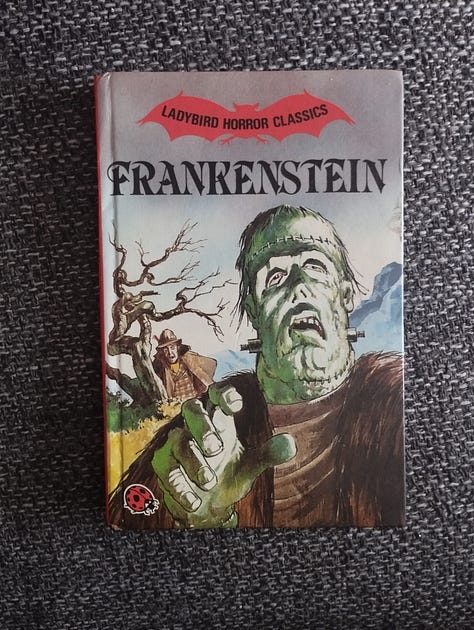
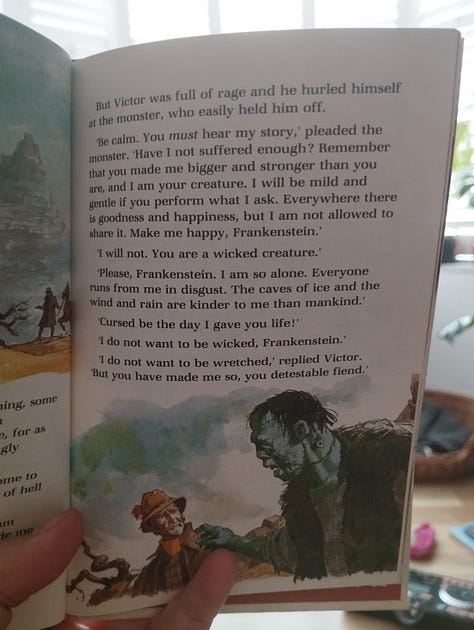
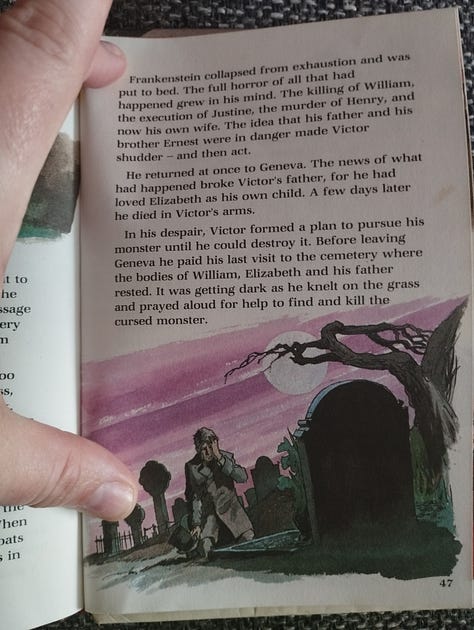
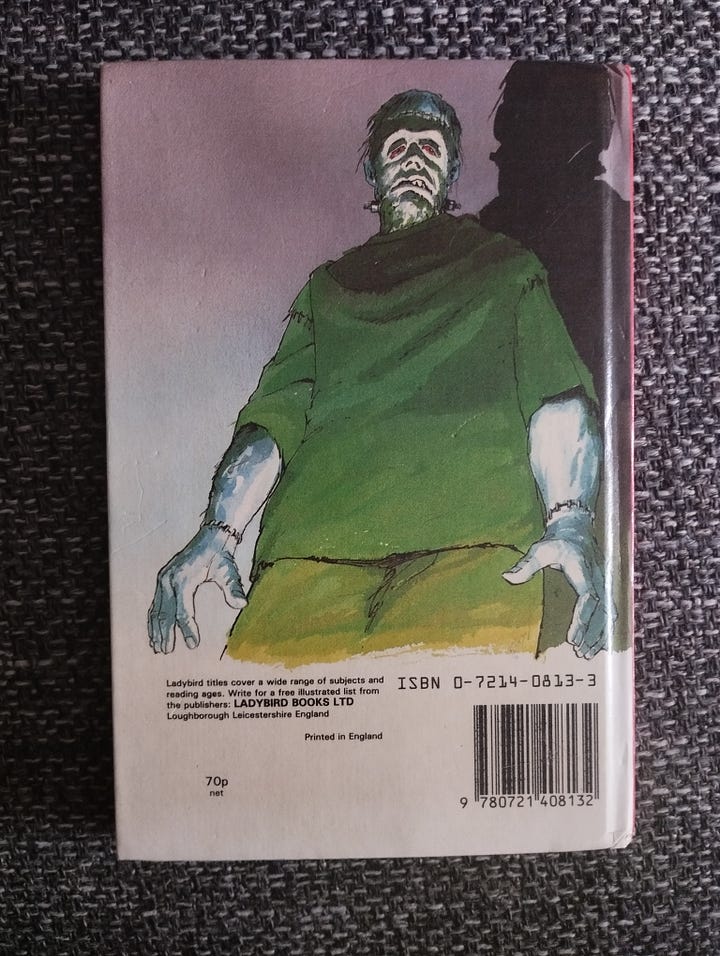
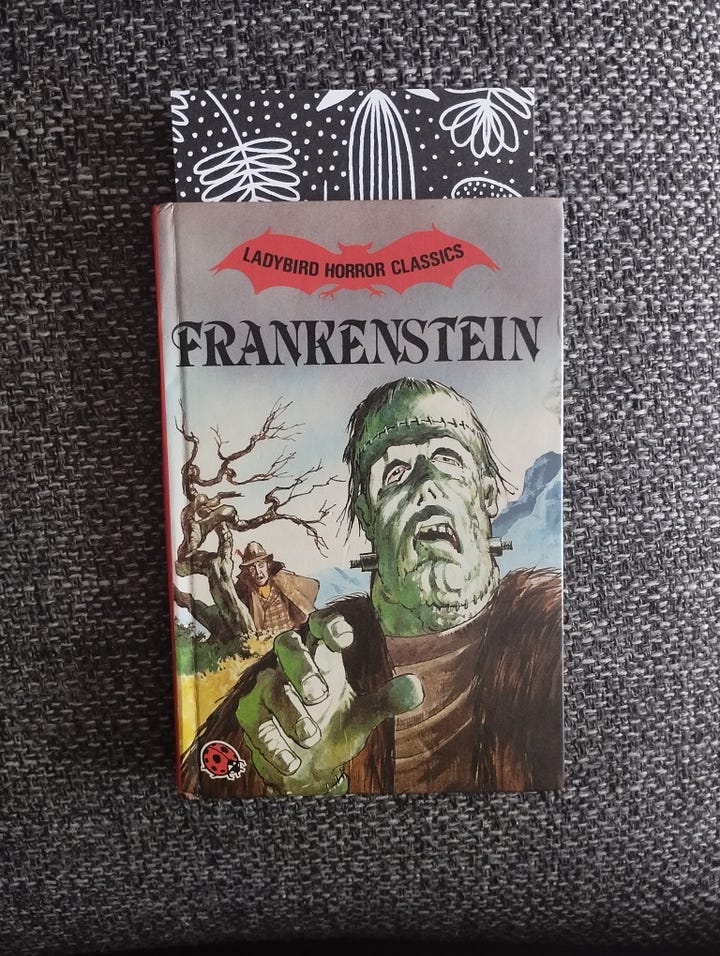
More recently, Amy sent me a link to a podcast on Vincent Van Gogh- another post for another day. It was the ‘You’re dead to me’ podcast on BBC Sounds. Scrolling through, I found an episode on Mary Shelley and of course listened. If you don’t know the podcast, it is part history, part comedy. I wasn’t sure whether there would be much that I hadn’t already heard, but one thing I took away was how much Mary Shelley wrote after ‘Frankenstein’, including ‘The Last Man’ which is apocalyptic sci-fi about a plague that kills almost the entire human race. What a woman.
I think that’s pretty much it. I forgot to mention that when I left a much loved job, my colleagues gave me a beautiful hardback edition that I love to open randomly and read. See below- perhaps one of the most famous passages from a novel? I always use it to demonstrate how to use colour in description. Yellow. Black. White.
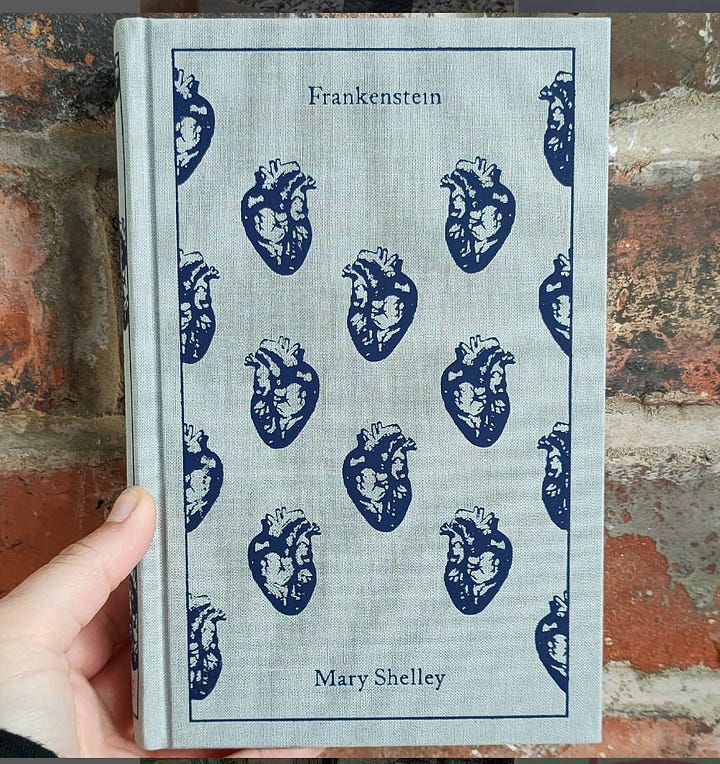
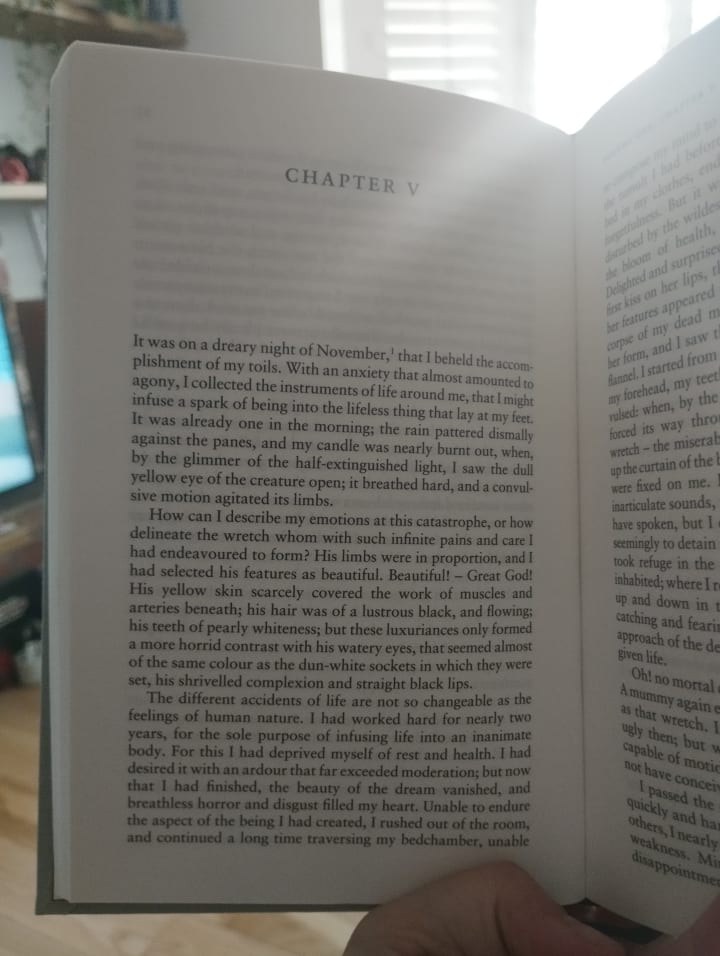
I hope I might have inspired you to read ‘Frankenstein’, or re-read it, or purchase a child the Ladybird version, or write something of your own. I’m going to quickly press send now before my brain convinces me I am a massive twat and no-one wants to see this ramble in their inbox!
Rachael xx


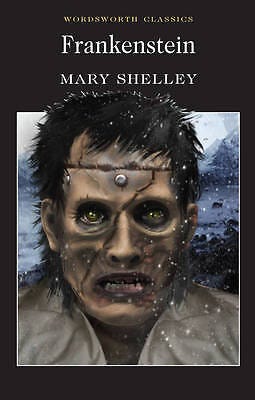
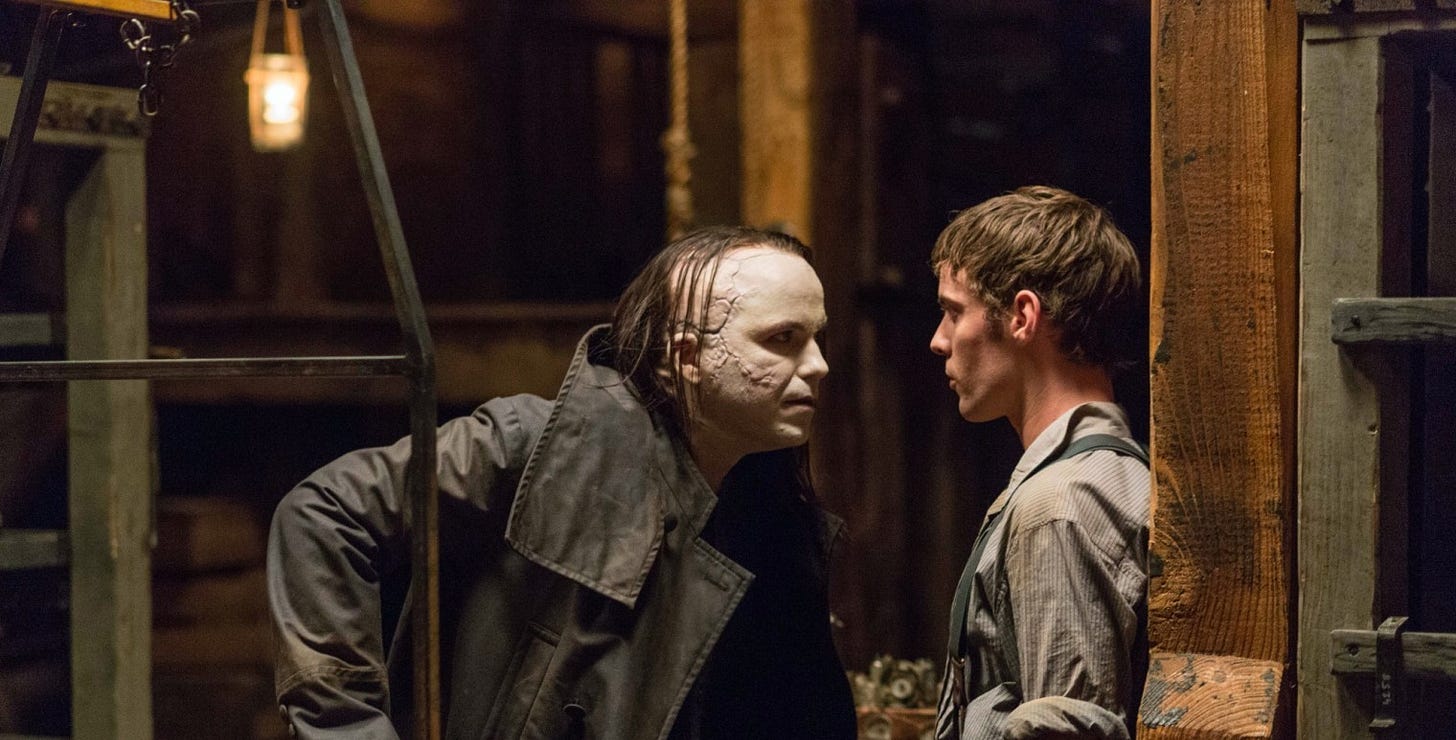
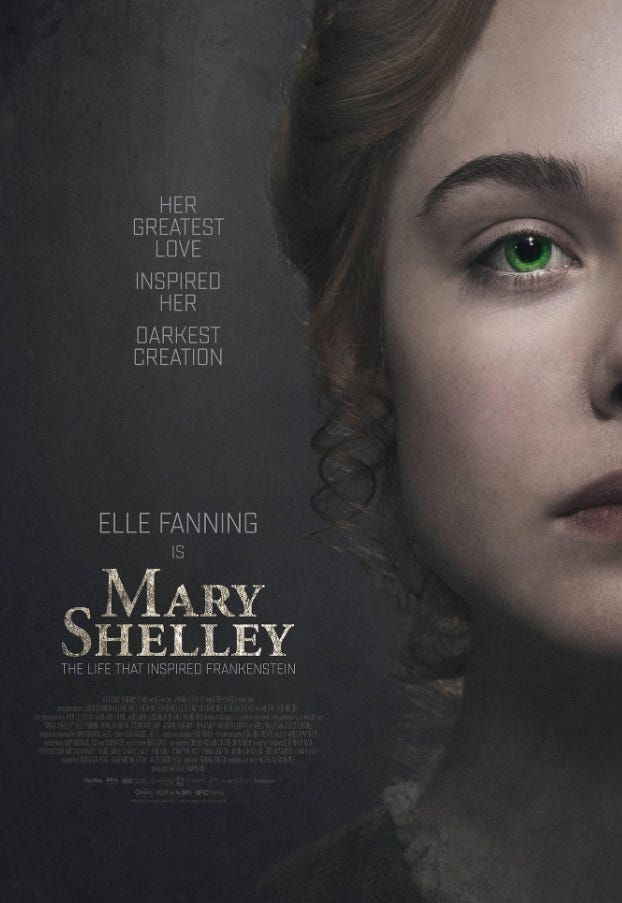
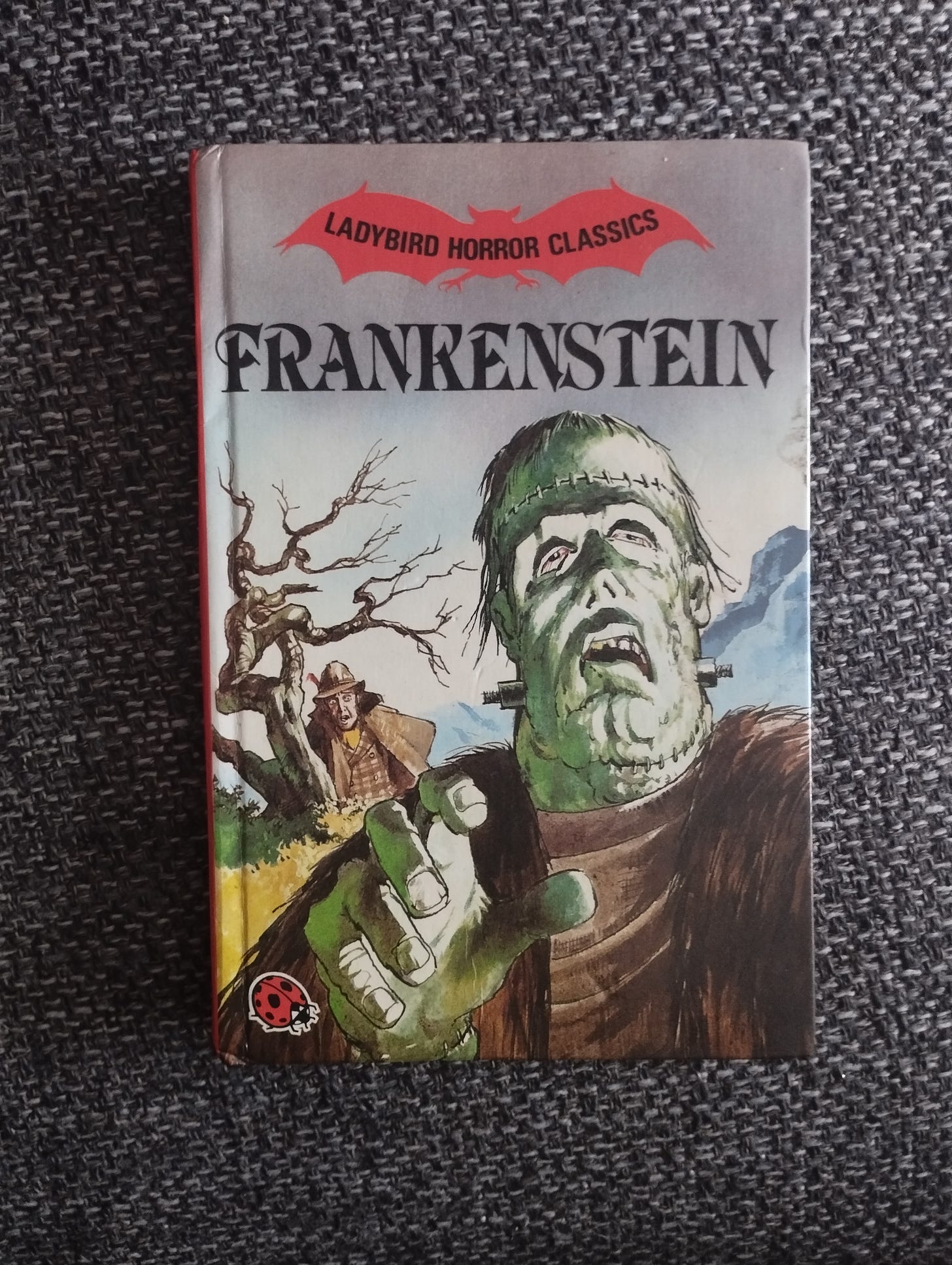
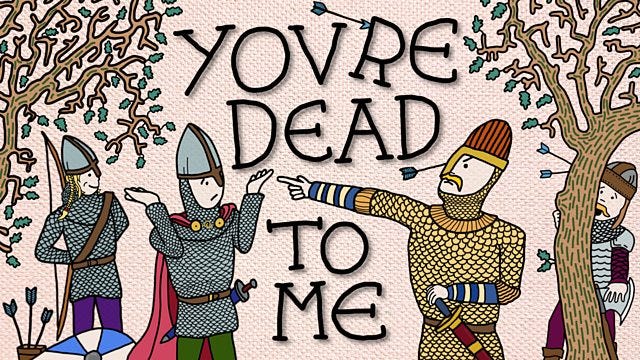
A lovely post and highly relatable. I read Frankenstein during school, it was probably the first novel I read in the space of a day. Still as intimidating an achievement to my late-20s self as it was to my teenage self!
M, teaching me Frankenstein, made chaotic scribbles on a blank piece of paper and said 'this is the content - gothic and out of control' then drew a crisp square around it and said 'this is the epistolary form, encompassing all of that and lending the safety of distance. But we forget that as we read and are still swept up in the horror of the story'. x